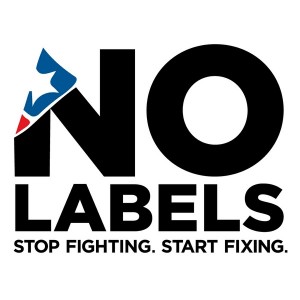This article appeared originally in The Hill.
 When California Congressman Ami Bera met New York Rep. Christopher Gibson at a dinner last April, they began a conversation about how the two of them — a physician and a retired Army colonel, a Democrat and a Republican — might work together in Congress to advance the country’s interests.
When California Congressman Ami Bera met New York Rep. Christopher Gibson at a dinner last April, they began a conversation about how the two of them — a physician and a retired Army colonel, a Democrat and a Republican — might work together in Congress to advance the country’s interests.
It didn’t take them long to come up with an idea.
While the two men held different career perspectives, they shared a deep concern about health care for our military’s men and women. They knew that there were serious problems, particularly with the muddled and inefficient health-records system in which active duty service members received care through the Department of Defense and veterans through the Department of Veterans Affairs. The doctor and retired officer understood that with little coordination between the two mammoth agencies, service members often encountered frustrating bureaucratic delays in accessing benefits and health care as they returned to civilian life. And they agonized that this was a terrible way to repay those who’ve served our country.
Both Rep. Bera and Rep. Gibson are members of No Labels, a fast-growing movement of citizens and political leaders who are dedicated to the politics of problem solving and consensus building. As members of No Labels’ Congressional Problem Solvers, a group of nearly 100 lawmakers from both parties and both houses, they were committed to working together to find a better way to take care of our service men and women and returning vets. And they did.
Out of their conversation that night came the 21st Century Health Care for Heroes Act, a bill to construct a streamlined and easily accessible electronic health-records system for military service members and veterans.
The bill became part of a legislative package, Make Government Work!, that the No Labels Problem Solvers unveiled last summer with sponsors on both sides of the aisle.
So clearly beneficial was the No Labels bipartisan, common-sense bill that key language from it was incorporated into the National Defense Authorization Act, which was signed into law by President Obama in December. The language set out standards for the creation of an authoritative health-data system that will, for the first time, merge the electronic health records of the Department of Defense with the Department of Veterans Affairs—thereby, as Rep. Bera stated, “saving money, making the transition to civilian life easier for vets, and helping address the VA backlog.”
If all goes according to plan, patients will be able to download their own medical records and, in time, share them via a secure, remote storage system with their healthcare providers.
As Rep. Bera noted after the original bill was introduced, “Creating an efficient and responsive health care program for service members and veterans isn’t just a Democratic or Republican priority, it’s important to all members of Congress regardless of party, and it’s something we can achieve if we just listen to one another and work together.”
The adoption of this measure is proof that listening to one another and working together really can make a difference and lead to results. This is just one example of what No Labels and the Problem Solvers group can do and continue to strive towards.
The group has just embarked on a three-year campaign to develop a national strategic agenda, a shared vision for this country built around goals and concrete actions that reasonable people of differing political persuasions can agree upon and rally around.
The group is working with members of Congress — people like Congressmen Bera and Gibson and more than 75 others who’ve said they support the concept of a national strategic agenda — as well as other political leaders and some of the nation’s leading voices in business and economics to develop a set of objectives and policy options. No Labels hopes its national strategic agenda — a new sort of governing process based on shared goals — will emerge as a major part of the political discussion in the next presidential campaign.
The process won’t be easy—nobody ever said democracy would be. But the continued progress of our nation and the well-being of citizens depend on our earnest efforts and more constructive, good-faith conversations between Democrats and Republicans.









Leave a Reply